Taylor Lorenz is wrong about Insurance CEOs
murdering people is bad
This is a timed post, In order to make myself post more, I have 1 hour to complete it. healthcare is a big topic and we can’t cover it all, but we can at least start with rebutting Taylor Lorenz of Vox media’s Power User's post on why people should kill CEOs
I suggest you read her post “Why "we" want insurance executives dead” first.
Healthcare is an interesting beast. To explain the case for government intervention in healthcare, we can begin with the premise that people should never be rejected from receiving care for say, a bullet wound. You would not want to hold up treatment for someone about to die.
What ends up happening is that this person is given treatment, but caring for people is expensive, and someone will need to pay. Not paying for healthcare does not make sense, because becoming a doctor or otherwise any healthcare professional takes years of training - and if salaries were too low due to not getting paid, there would be no incentive to build out that infrastructure. So healthcare is one of those things that, if you leave entirely to the market, some people will die due to unaffordability. The inherent cost of the issue is inescapable and must be paid by someone. That’s the simple logic behind why it shouldn’t just be left to the market.
So we have the basic situation: people are given treatment, and someone has to pay for it. And in our society, that someone is a combination of the government, citizens, and insurance companies.
The insurance company
How insurance works is:
You pick a plan/a plan is picked for you by your job
You pay a monthly premium
If and when you are in need of care, insurance pays out based on your plan
What this means in practice is that the insurance company is selling you a product for a cost. Since it’s a business, it needs to make money to continue to exist. What does Taylor say about this?
Let me be super clear: my post uses a collective "we" and is explaining the public sentiment. It is not me personally saying "I want these executives dead and so we should kill them." I am explaining that thousands of Americans (myself included) are fed up with our barbaric healthcare system and the people at the top who rake in millions while inflicting pain, suffering, and death on millions of innocent people.
According to Taylor, the people at the top “rake in millions.”
Just what is the profit margin of insurance companies exactly? Around 3.4%, or $18 billion in 2022.
Even if we were able to eliminate administrative profits entirely, as a fraction of total healthcare spending at $4.5 trillion a year, you would be saving a little more than 4 billion dollars. Given that the US spends 16.6% of its GDP on healthcare, what you end up seeing is that insurance profits almost certainly do not account for the gap between the US and the second-place holder, Germany, at 12.7 percent. Compared to Germany, the US is 27 percent higher in terms of it’s healthcare expenditures/GDP. We’ll touch on the cause of this increase shortly.
Also according to Taylor, it’s insurance companies who are responsible for all of this suffering:
People have very justified hatred toward insurance company CEOs because these executives are responsible for an unfathomable amount of death and suffering. I think it’s good to call out this broken system and the people in power who enable it. Again, not so they can be murdered, but so that we can change the system and start holding people in power accountable for their actions.
I just think this is wrong.
The suffering is caused by disease, issues of old age, or accidents. Suggesting that insurance companies are the cause of this pain elides the fact that pain and suffering are a feature of life to be mitigated. To the extent that insurance companies cause pain, it’s mostly to healthcare providers who they spend most of their time arguing against in order to lower costs.
This is the case whether it’s a private insurance company, or government insurance. Ultimately, these costs have to be bargained against, which is a dynamic we see play out in country after country.
So, what is the cause of the healthcare spending crisis in the US? We should be careful in answering this question, because this frequently stated claim presupposes that there even is a spending crisis in the first place.
There is no “healthcare crisis” in the United States by any reasonable definition
What are some reasonable definitions of what a healthcare crisis could be?
Most people have no health insurance, and will pay for the brunt of care themselves.
The US is uniquely terrible with overspending.
The country is, generally speaking, in poor health because of bad healthcare.
It’s important to keep in mind some basic stats when people tell you to kill CEOs due to any of these supposedly ongoing crises:
I. 92% of Americans have health insurance, with a majority being satisfied with their coverage.
Health insurance, just like congress is an example of a thing that people rate higher when asked about their individual experience, but rate lower when asked about their feelings on the topic with respect to the entire nation. But individually speaking, people are mostly fine with the insurance they do have, and the overwhelming majority of people do in fact have coverage. It’s not 2010 anymore: the ACA was passed and healthcare expansions have been in place for more than a decade.
This is an example where the discourse has not caught up to changing times.
II. The US is, by and large, within expected trends in healthcare spending. (read here from Random Critical Analysis, and here from the Economist)
Imagine you live in a lower income country like Uruguay. You’re not going to spend that much on healthcare, because you are poor. You’ll take care of your more immediate needs first. But as you move up the income ladder, you’ll be more inclined to spend more money on healthcare than you otherwise would. The truth is that a lot of healthcare spending is not a do-or-die thing as most people say it is. When you get a cold, or if you want a nose job, or veneers etc., is a choice that you can make without the duress of a life or death decision.
So what you see is that people elect to spend more money on healthcare (a broadly defined term) as they make more money. This is an interesting choice, but US spending is well within trends here.
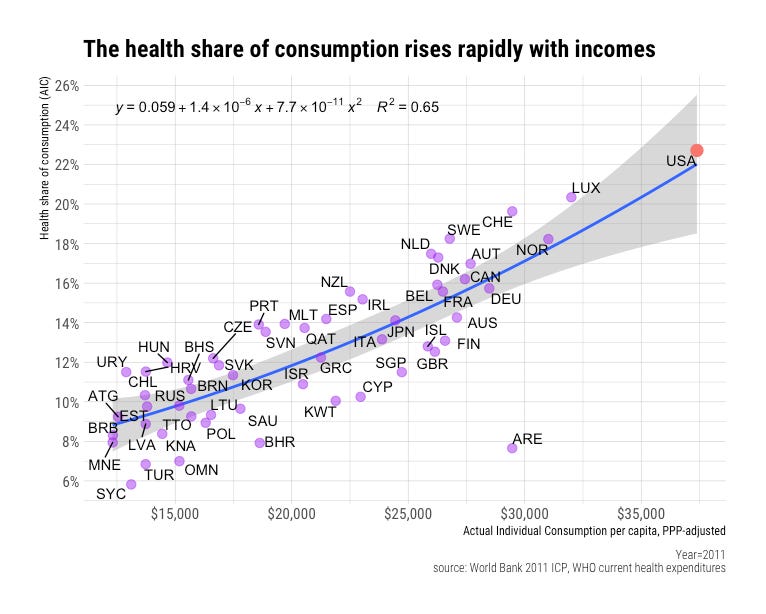
RCA’s posts on healthcare are gargantuan, but well worth the read. For a partial dissent and more comprehensive view of this data, read Noah Smith on Healthcare, Education, and Childcare.1
III. Lack of healthcare access cannot entirely explain health outcome differences.
One might imagine that health outcomes being worse in the US could be due to factors beyond healthcare. Including car accidents, murder rates, obesity, and drug overdoses as examples. I just don’t buy that 8% of people being uninsured explains poor health outcomes, as opposed to these statistics. These metrics significantly diminish our health outcomes, and cannot plausibly be explained by a lack of insurance.
Car deaths:
Murder:
Obesity:
Drug overdoses:
All that said, there are healthcare problems. We do spend a lot, and if fertility is anything to go by, healthcare costs will become a big issue in the future, but the term “crisis” is inappropriate for what is in reality a solvable problem.
Murdering people is bad
Simply put, many secular trends cause US healthcare spending to be high, but it’s in line with the trends affecting each country, most notably due to aging I’m sure, as well as various societal issues causing more obesity, car accidents, murder, drug overdoses, Baumol’s cost disease and so on. Looking at health outcomes and describing a made up crisis to blame on insurance companies is a much too simplistic view of a more complicated issue, the full extent of which I don’t have time to cover in a single post.2 In any case, there’s nothing inherently immoral with an insurance company responding to outrageous provider billing with “um… source?” Providers are a titan in the healthcare space, and it’s understandable that similarly large companies need to bargain on behalf of cost control.
In any case, Lorenz shouldn’t be happy about people being murdered.
Suggesting that killing insurance executives is in any way a solve or a reasonable reaction to these complex issues is both evil and absurd. This is a much overstated crisis to begin with, and with profit margins as small as what we see, insurance companies cannot be saddled with the entirety of the blame. Much of the blame has to be reserved for government regulation, worker cartels, and secular trends as well as any insurance company fraud, if we are trying to accurately understand what is in fact a complicated problem.
In conclusion, Lorenz is a terrible person and should stop justifying violence and spend more time reading charts and graphs. I will commend her for her ability to take complex issues and boil them down to populist “the people vs CEOs” rage. But she’s wrong.
If you liked this post, please consider subscribing and sharing. Also, we’re almost at 100 followers, and my 100th is getting some serious sloppy toppy as thanks.
- Josh
The gist is that healthcare is for some reason commonly modeled as an inelastic good, which doesn’t entirely make sense. It could also function as a luxury to an extent, meaning that healthcare spending is not inelastic and will increase as people make more money to throw into it. Noah Smith discusses this concept generally applied to various services, and has a back and forth with RCA about this. Like with all things, I think the truth is somewhere in the middle.
Remaining as brief as possible, there are 2 issues at play. The first is that the US suffers from a lot of societal ills that make life quality worse. This could be a lack of public infrastructure and car dependence, to a lack of housing supply which increases homelessness, to a combination of guns and low police enforcement and so on, which all contribute negatively to life in this country. The second issue is that these problems are concentrated, meaning that a small number of people consume a lot of healthcare (they cannot afford it). This means that we ultimately need to raise taxes to pay for them. At the same time, no one wants their taxes to go up. Add in the fact that we have a huge number of elderly people, and the scope of the problem becomes clear. This is the fundamental tension at play across a wide variety of issues.



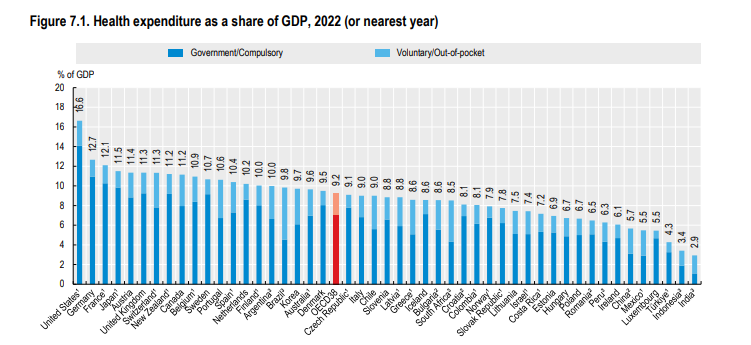


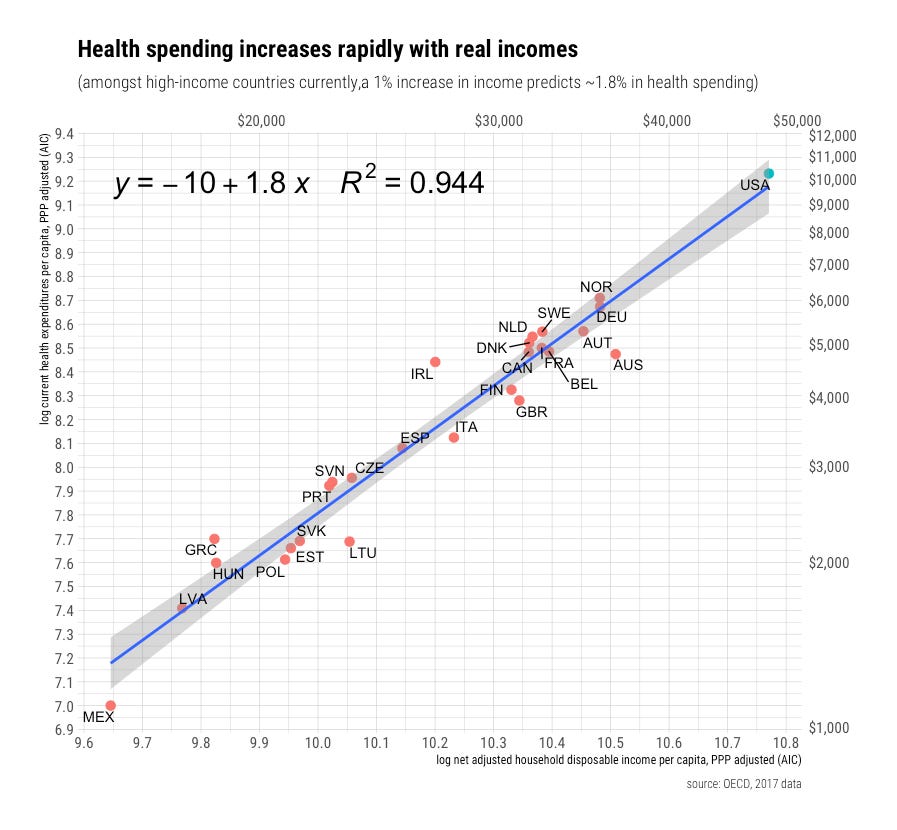


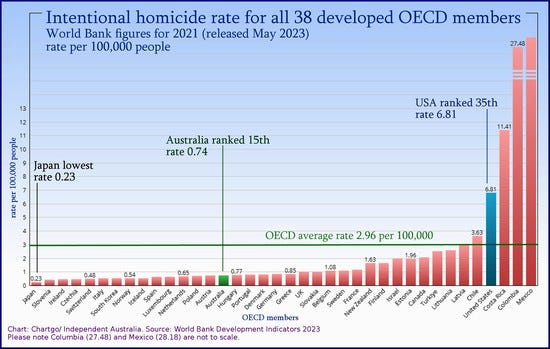
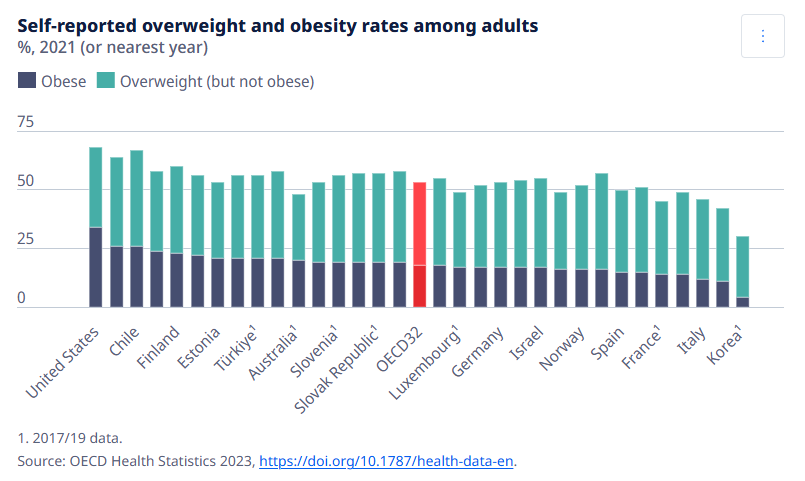


“Taylor Lorenz is wrong about abso-fucking-lutely everything”
#fify
It’s one thing to not be sad about it (Literally don’t even know who this man is), but the gleefulness about this man’s death is disturbing.